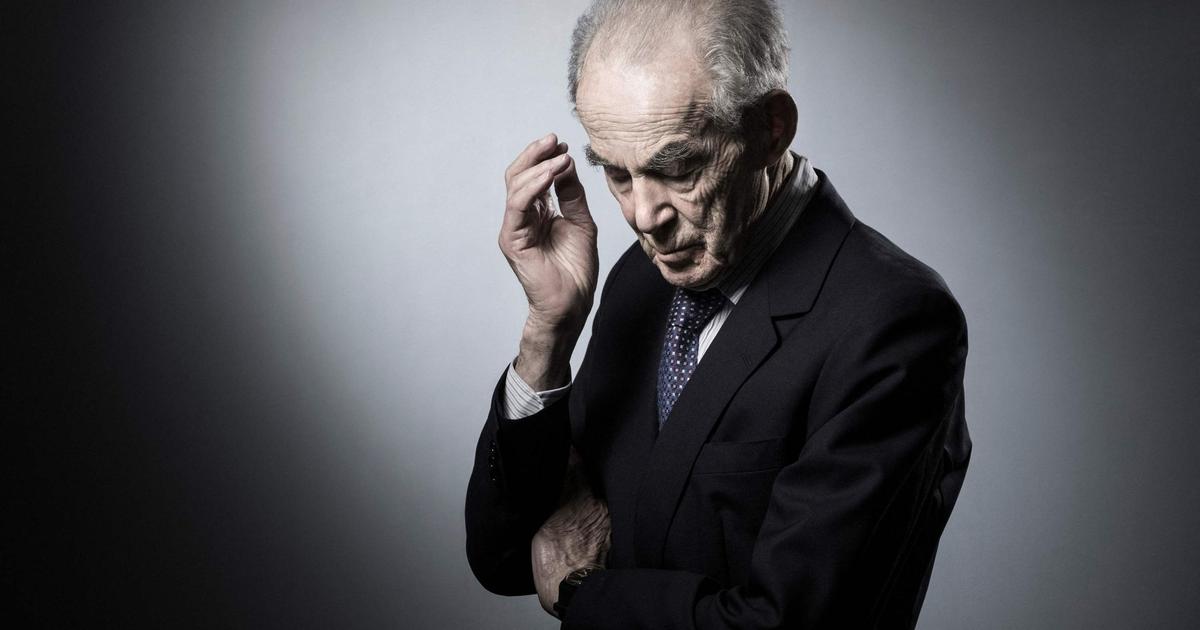“The right to life is the first right of every human being – it is the contemporary foundation of the abolition of the death penalty – and I cannot in any way deviate from this principle
. ”
Robert Badinter passed away on the night of February 8 to 9 before the conclusion of the new debate on active assistance in dying desired by Emmanuel Macron.
But the father of the abolition of the death penalty, former Minister of Justice and President of the Constitutional Council, had taken a position on this subject on several occasions.
“
Does the State have the power and the right to say: ‘Since you want to die, I am going to kill you’?”,
he said in 2008, hearing on the legal repercussions of an exception for euthanasia as part of a parliamentary mission chaired by MP LR Jean Leonetti.
Public opinion was then in full turmoil after the Chantal Sébire affair, a 52-year-old woman suffering from an incurable and
“extremely painful”
facial tumor who had asked for the right to anticipate her death before committing suicide.
Also read: “You shamed me!”
: relive Badinter's famous anger during the 50th anniversary of the Vel d'Hiv roundup
Far from a
“stoic”
or
“extremely religious”
thought according to which suffering should be accepted until the end, Robert Badinter had argued before the deputies that
“the life of others is not at anyone's disposal”
.
“Every human being has the right to respect for his or her life, including from the State, especially in a democracy
,” insisted the famous lawyer.
The corollary of this
“respect for life”
is
“the freedom to commit suicide
,” he said, emphasizing that
“everyone is master of their body, and therefore free to dispose of their body and their life
. ”
Attached to this freedom, he however did not imagine that it could be exercised with the help of a
"public assistance service, open twenty-four hours a day"
, for those who had decided to end their lives
“Human beings are fragile.
The anxiety of death is present.
At times, in everyone, it experiences a very strong intensity.
For some, when faced with an ordeal, there is a temptation to death which is inherent to the human condition.
The existence of a service ready to welcome you to respond to this temptation seems to me to present a risk of incitement to suicide
,” he reacted.
PS senator at the time, this former close friend of François Mitterrand said he was annoyed by the
“fury to legislate in our time to respond to the media call”.
Especially since in his eyes criminal law had not only
“a repressive function”
but also
“an expressive function”
reflecting the essential values of our society:
“On this point, I will never change.
No one can take the life of another in a democracy.”
If we legalize the euthanasia exception, you will have gray areas.
Within a family, some will say: “No, grandmother didn’t want to die!
", and others: "Yes, she told me she wanted to die!
»
Robert Badinter
On the exception of euthanasia, Robert Badinter had raised other difficulties.
Like conceiving that an authorization to kill could depend on
“any committee”
,
“however honorable”
,
“apart from any legal decision”
.
He also recalled his distrust in matters of
“exceptional jurisdiction”
, particularly
“when it comes to fundamental principles”
.
Furthermore, the introduction of this notion into the law, and therefore into the law, would not have prevented the trials:
“If we legalize the exception of euthanasia, you will have gray areas.
Within a family, some will say: “No, grandmother didn’t want to die!
", and others: "Yes, she told me she wanted to die!
“I have experienced such situations and heard such comments
,” he warned.
Also read Death of Robert Badinter: the most significant words of the former Minister of Justice
Faced with the complexity of such cases, justice was, in his opinion,
“best placed”
to respond.
Including by acquitting the perpetrators of euthanasia carried out out of compassion.
“Creating legislation for exceptional cases is not the right way to resolve them
,” defended this lawyer.
The way to resolve them is to refer these cases to those who have a duty to know about them and to see how to ensure that justice is done, including through an acquittal that will be publicly recognized - and that is an advantage for the beneficiary – that there is no homicide in the sense in which it is commonly understood.

